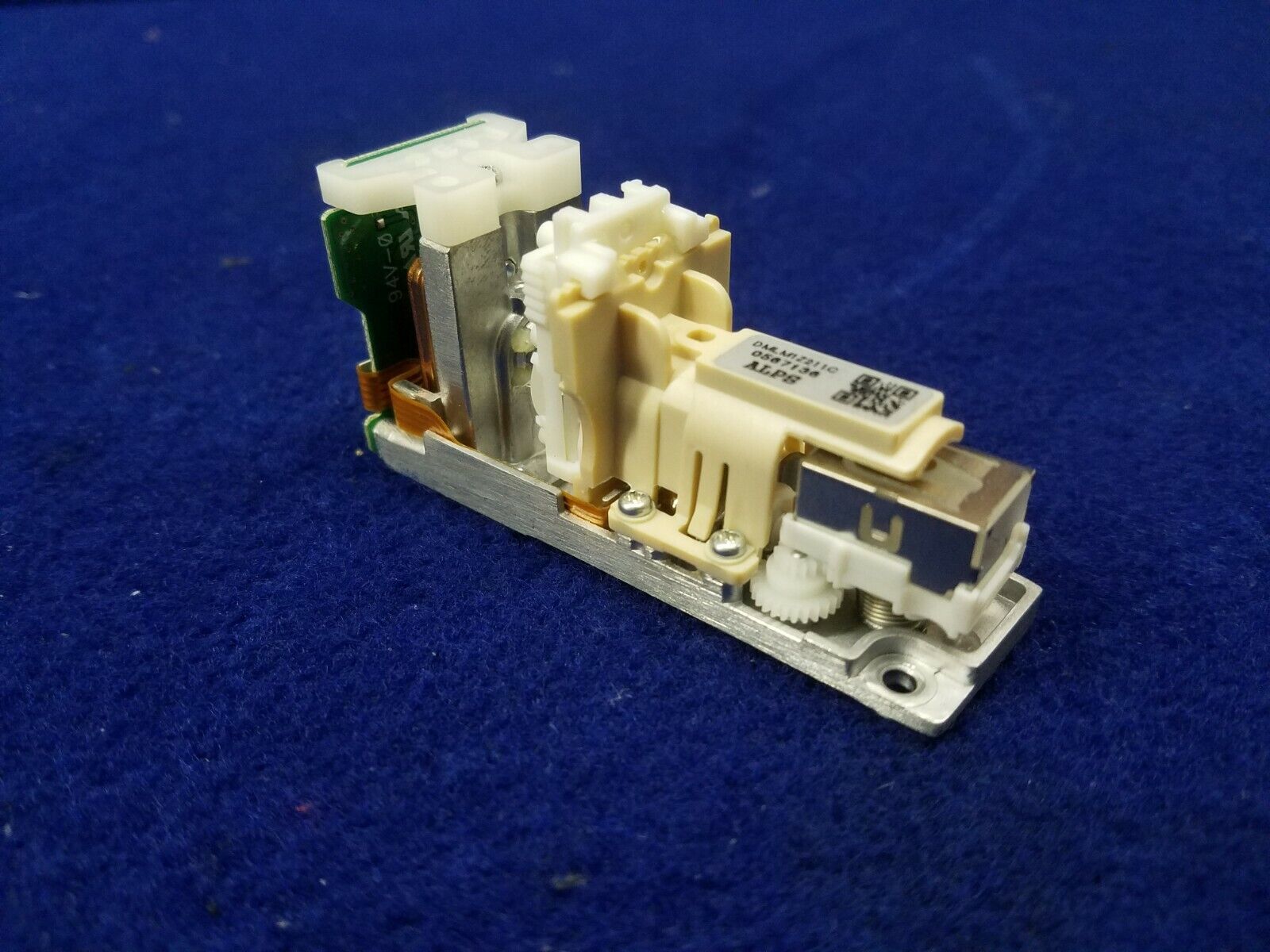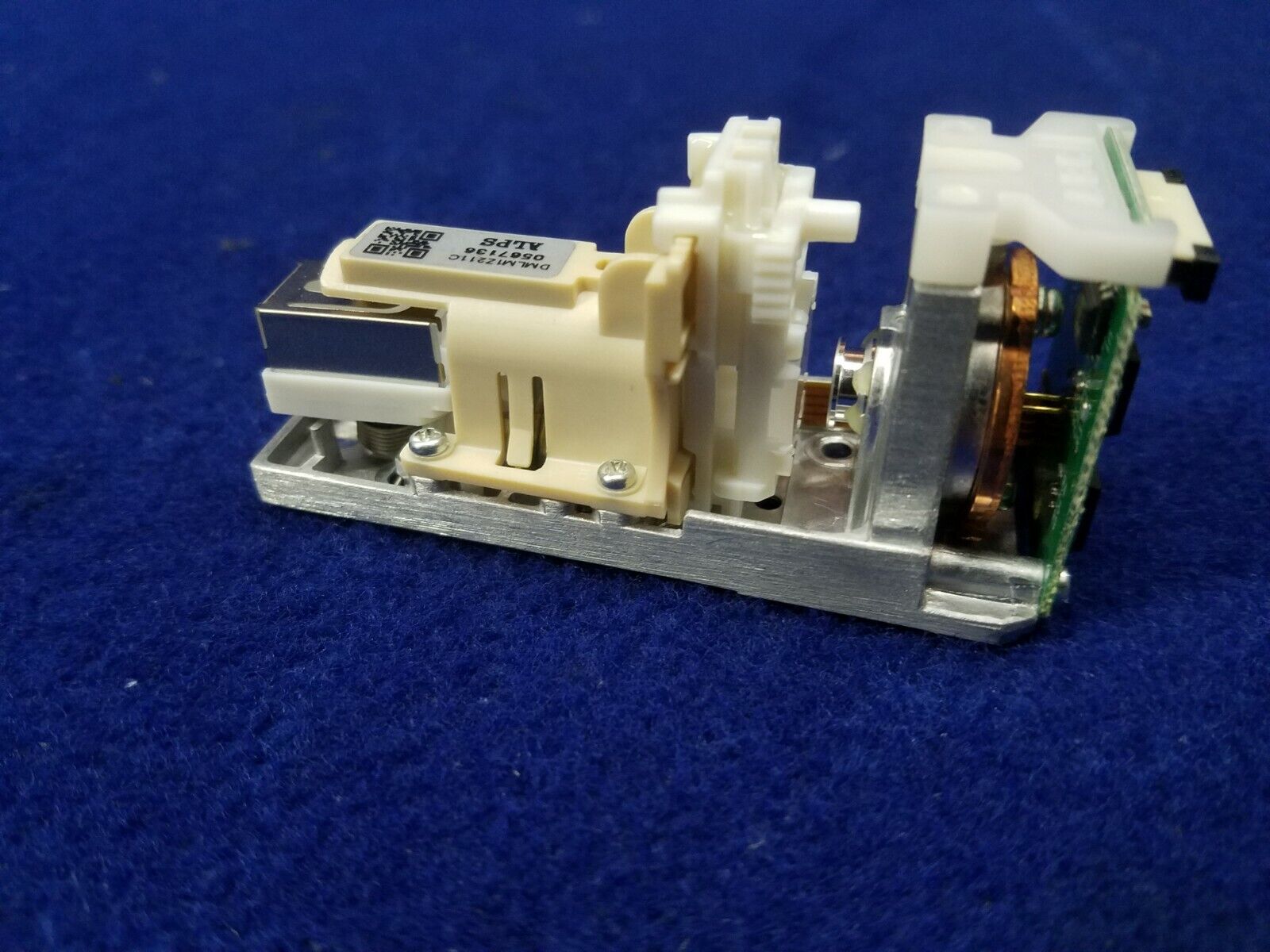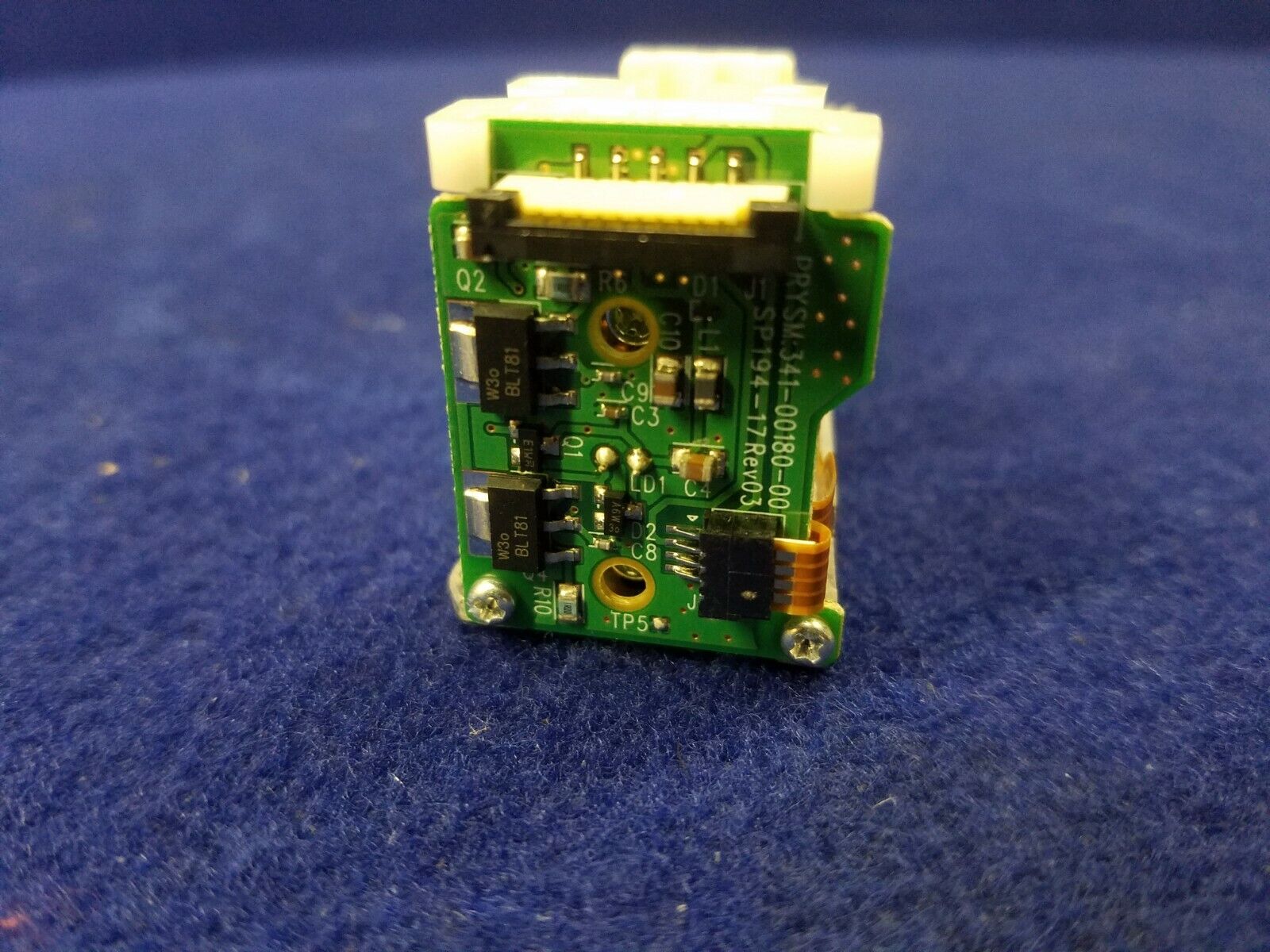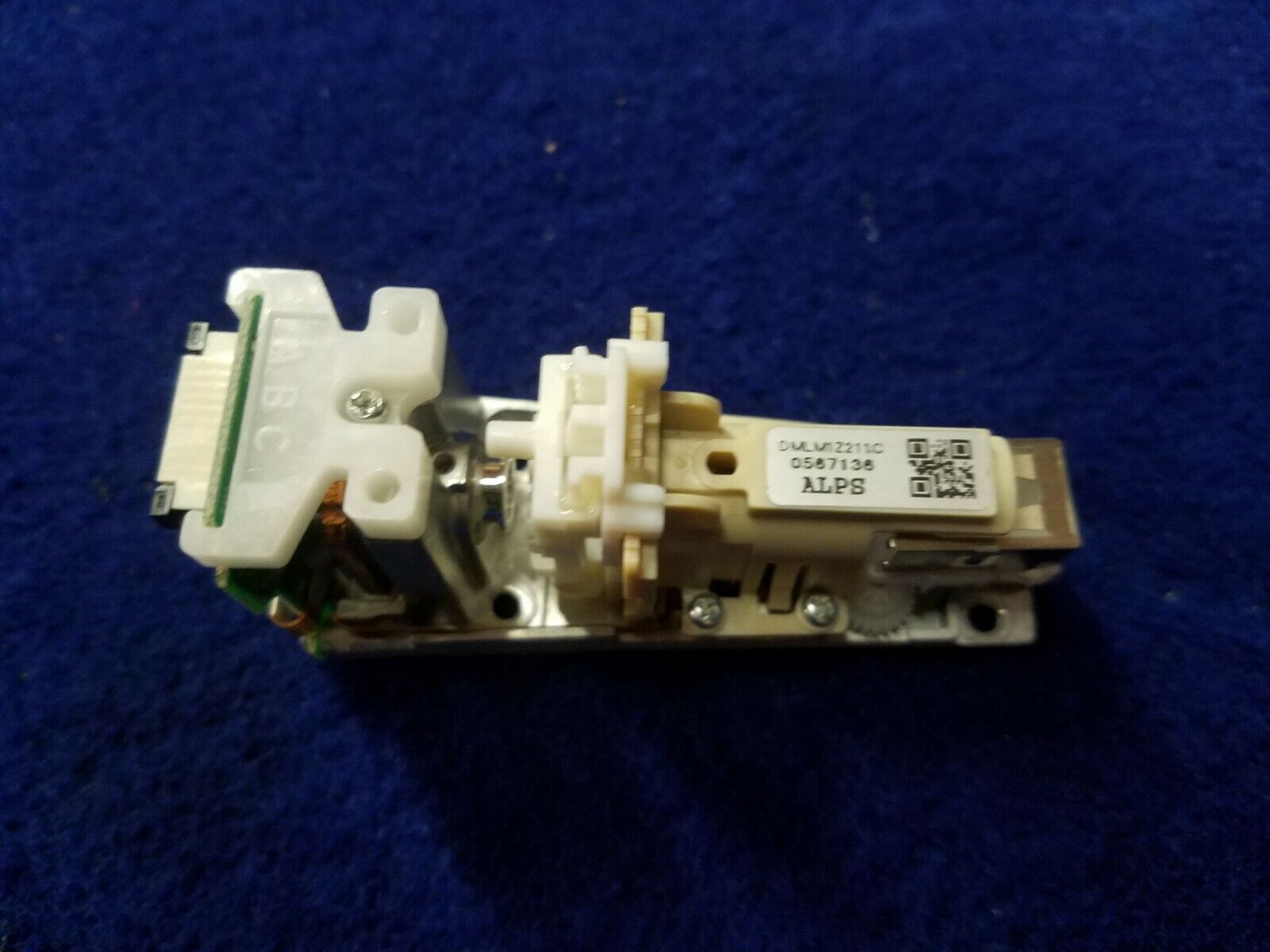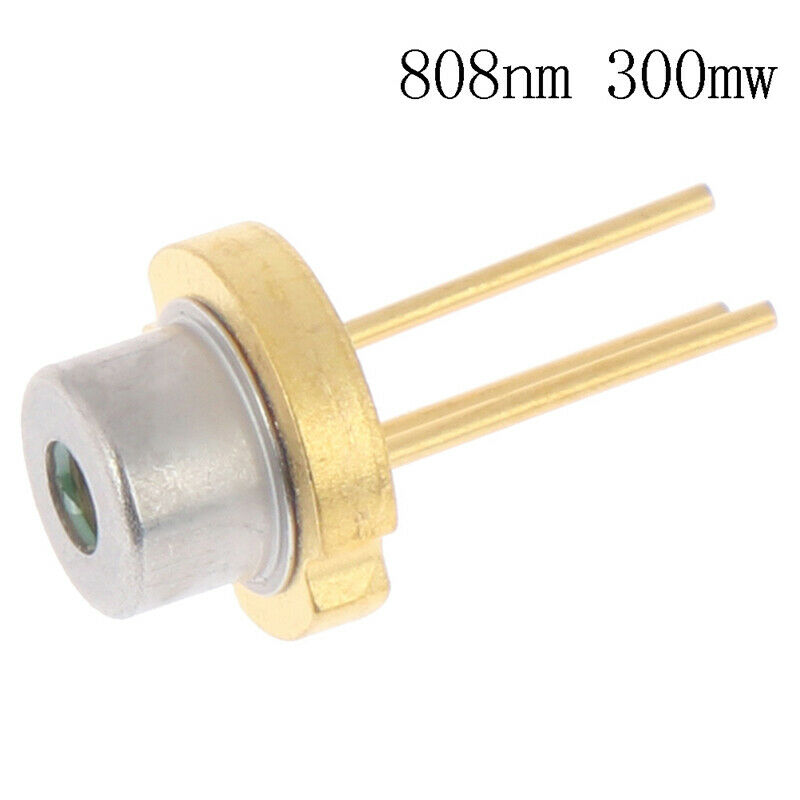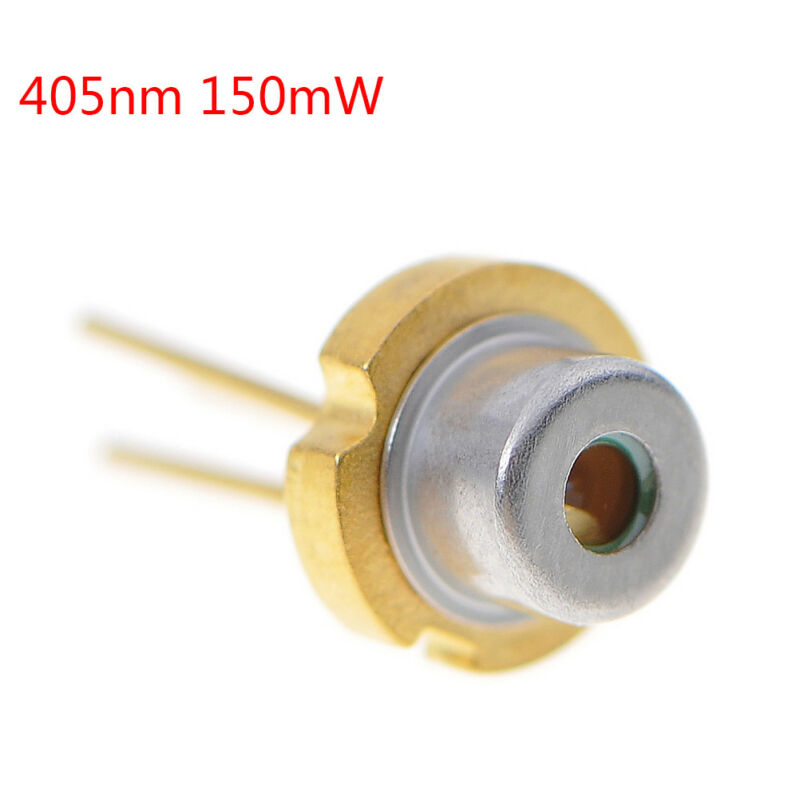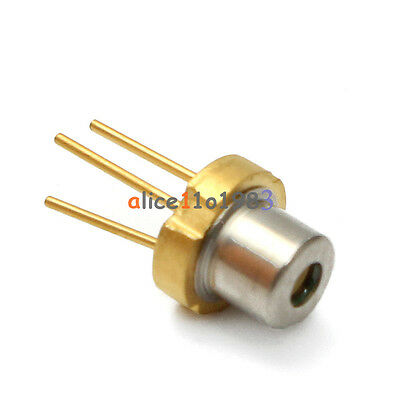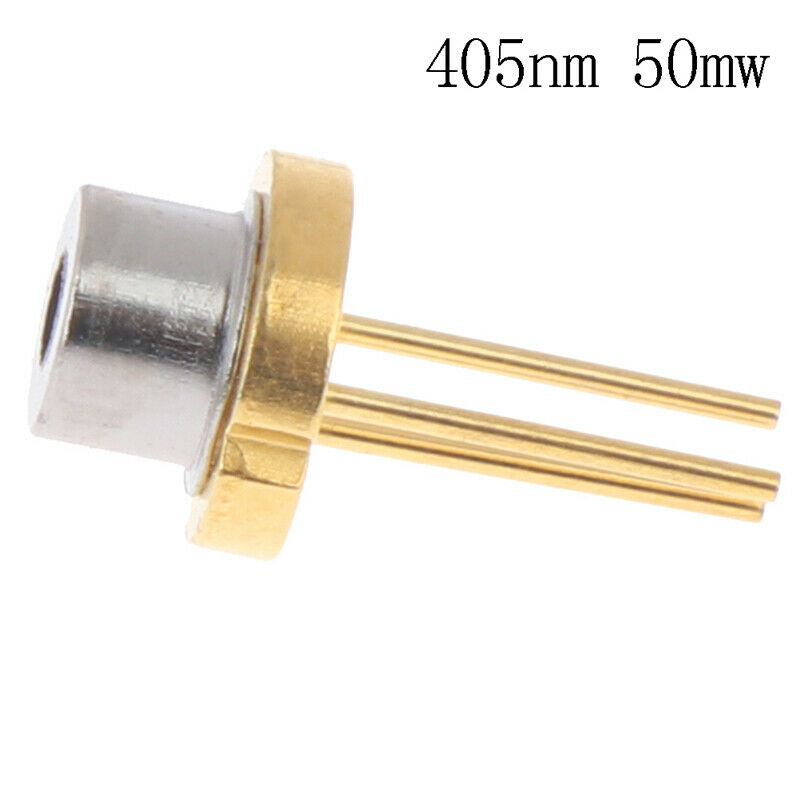-40%
High Power 405nm UV Laser Diode Assy w/ Aspheric Collimating Lens Tested at 1.5W
$ 15.83
- Description
- Size Guide
Description
High Power 405nm UV Laser Diode Assy w/ G-2 Collimator Lens 350mW / 1100mW 1.5WEach module has a high-power, multi-mode 405nm laser diode, a G-2 type collimating lens, a cylindrical anamorphic correction lens as well as an AR coated glass block that can be rotated by a tiny stepper motor to shift the beam left/right by a few mm.
The laser diode is in a standard 5.6mm can which has been pressed into a copper heat spreader. The diode leads are isolated from the case and the polarity is shown in one of the pictures. The diode can be easily removed by bending the soft copper heat spreader. I don't know the diode manufacturer, but it looks and performs much like a Sharp GH04W10A2GC. These are multimode lasers.
The GH04W10A2GC is conservatively rated for 350mW CW and 1100mW pulsed, but is quite capable of being overdriven. We test each unit - briefly at 1250mA to make sure it has lots of headroom and again at 1000mA to check the operating power. These diodes are guaranteed to produce 1.5W or better at a maximum of 1.1A drive current. The chart also shows a typical 16X Blu-ray diode performance for comparison. The wavelength shifts up to 410-412nm when run at 1.5W.
There is a driver board on the back of the module, but I have not fully figured it out and recommend using an external driver suitable for producing 1A or a bit more with a diode compliance voltage of 5.0V. Driver pinout provided on request.
The G-2 type lens is AR coated specifically for 405nm so it is extremely low-loss.
The cylindrical anamorphic lens corrects the multi-mode output from a 25mm x 4mm stripe at 10 meters to a 25mm diameter spot at 10 m (see pictures). This works out to a divergence of about 2.5mrad. The beam exiting the module is about 4 x 1 mm so suitable for knife-edge combining. This does not make as tight a beam as a single-mode diode, but the circularized beam should focus down to a small, round spot for cutting and etching applications. We include a small focusing lens which is AR405 so very low loss. These should also be ideal for UV cured resin based 3D printers.
The final stage of optics is an easily removable block of AR coated glass that can be rotated with a tiny, built-in stepper motor. This allows the beam to be offset a few mm left or right without changing the aiming. This might be ideal for knife-edge combining.
